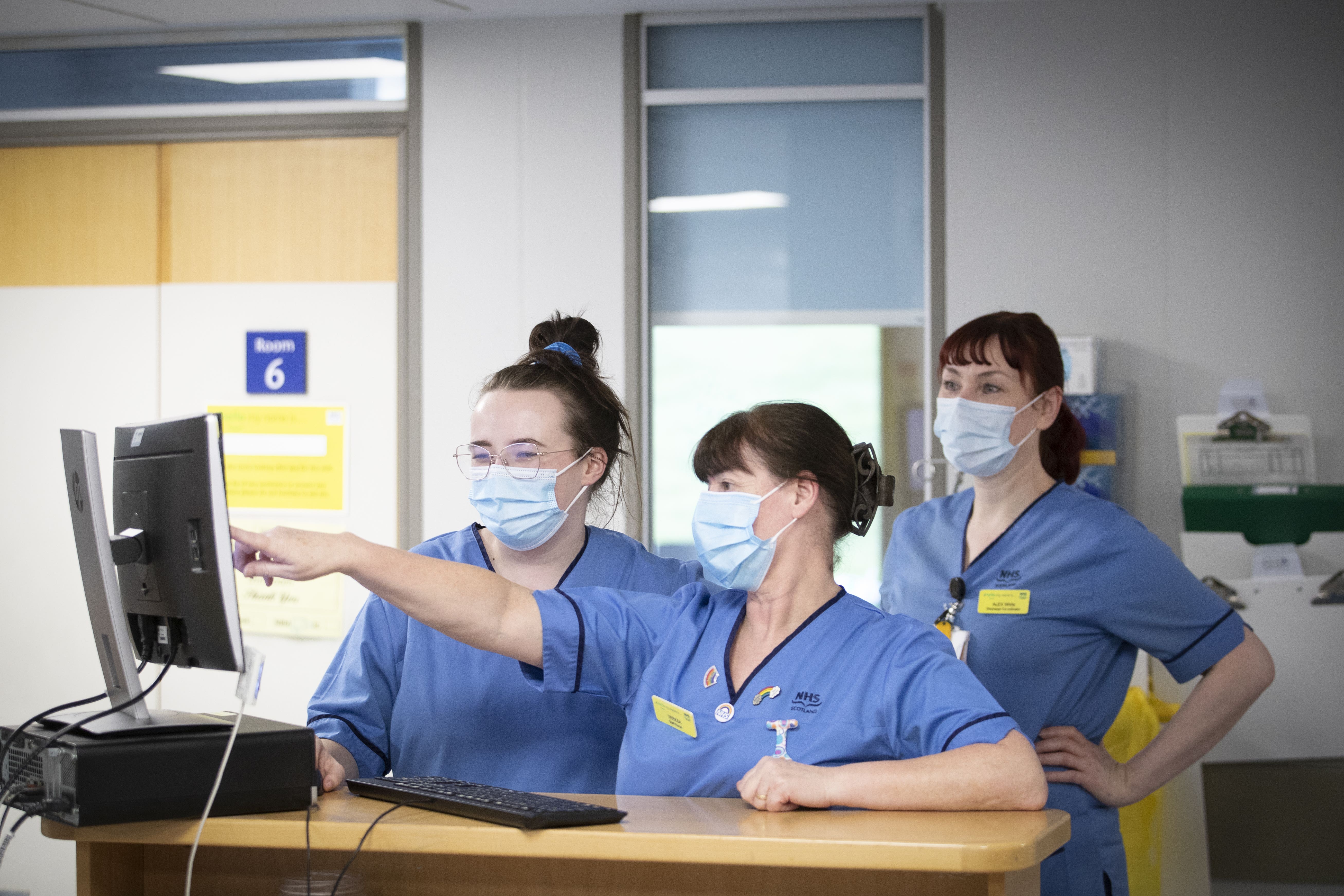‘Demoralised’ nursing associate votes for strike action to protect NHS future
Maxine Wade, a nursing associate from Yorkshire, said she has decided to strike to defend patient safety.

Your support helps us to tell the story
From reproductive rights to climate change to Big Tech, The Independent is on the ground when the story is developing. Whether it's investigating the financials of Elon Musk's pro-Trump PAC or producing our latest documentary, 'The A Word', which shines a light on the American women fighting for reproductive rights, we know how important it is to parse out the facts from the messaging.
At such a critical moment in US history, we need reporters on the ground. Your donation allows us to keep sending journalists to speak to both sides of the story.
The Independent is trusted by Americans across the entire political spectrum. And unlike many other quality news outlets, we choose not to lock Americans out of our reporting and analysis with paywalls. We believe quality journalism should be available to everyone, paid for by those who can afford it.
Your support makes all the difference.A “demoralised” nursing associate has said one of the biggest reasons she decided to vote in favour of strike action was to protect the NHS for future generations, amid fears that the service could end up in a “deeper crisis” if action does not take place.
More than 300,000 members were urged by the Royal College of Nursing (RCN) to vote for strike action in the union’s biggest strike ballot.
Maxine Wade, a nursing associate from Yorkshire, told the PA news agency that she voted for strike action in the ballot because she feels as though patient safety will continue to be compromised if action is not taken urgently.
“The main reason we’re doing it is for patient safety because if we don’t improve the pay or conditions, we’re not going to retain nurses and what you’ll leave is an NHS in deeper crisis and a further increase in patient mortality, poor care,” she said.
“We have an ageing population – we need a robust, well-funded supportive nursing workforce to support future generations to come.
“And unless we take action now, we’re not going to have that and that could lead to the privatisation of the health service.”
She added that while she recognises that people may have concerns about nurses striking, unions and NHS trusts will work together to “minimise disruption as much as possible”.
I understand that this is upsetting some people and ultimately it's not the action that we wish to take, but we feel like we have been given no other choice
She said: “I understand that this is upsetting some people and ultimately it’s not the action that we wish to take, but we feel like we have been given no other choice.”
She said that the job is very “physically demanding,” adding “it’s very stressful, I see a lot of upsetting things.
“And then when you get your wage at the end of the month – and then you see how low it is – it’s kind of like the final kick in the teeth.”
However, she stressed that pay is not the solitary and pivotal reason behind her reason to strike.
“The argument about us striking for money doesn’t exist in a vacuum – it’s because of the stress of all the other things that are causing nurses to feel burned out, to feel undervalued and demoralised and essentially go on to leave the profession.
“And I think we show we stand up for ourselves, I think that’s quite powerful.
“I feel like if we don’t take drastic action, what we’re going to have is an even worse situation than we have now because staff are going to be further demoralised and further burned out – and more people are going to leave the profession and there’s just not going to be the nursing workforce to care for future generations.”
She also spoke about the rhetoric used to define nurses during the pandemic.
“When we were being defined as heroes during the pandemic, it was not realistic because ultimately we’re human beings,” she said.
“When you are put on that pedestal, it means that when we have issues with how we are treated or paid, we are seen as ungrateful.”
The Government said it has contingency plans for dealing with any industrial action by nurses amid the growing threat of widespread strikes in the NHS.
Ms Wade added: “Hundreds of healthcare and social care workers died during that pandemic, which seems to be forgotten about.”
Ms Wade said that the ongoing cost-of-living crisis has had an effect on her, where she is often freezing because she puts the heating on less.
“I’m a single parent and it’s very difficult because my wage is not going up, but everything else is”, she said.
“My weekly shop is going up, I’m getting letters from the utility company and I’m having to pay more for my gas and electric.”
A Department of Health and Social Care spokesperson said: “We value the hard work of NHS staff including nurses, and are working hard to support them – including by giving over one million NHS workers a pay rise of at least £1,400 this year as recommended by the independent NHS Pay Review Body, on top of 3% last year when pay was frozen in the wider public sector.
“Industrial action is a matter for unions, and we urge them to carefully consider the potential impacts on patients.”